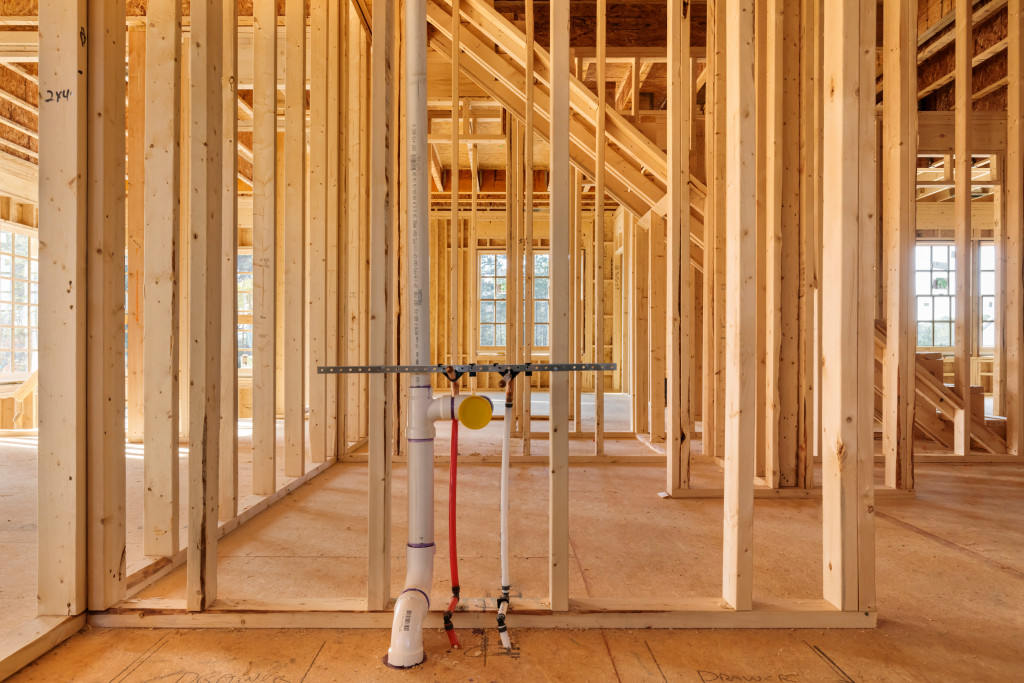- Building a home allows for customization and efficiency; budget and planning are crucial to success.
- Familiarize with building codes, zoning, and environmental regulations to avoid legal issues.
- Kick-start the project with a detailed plan, assemble a reliable team and obtain necessary permits.
- Site preparation sets the foundation for the construction phase; thoughtful alignment with natural elements is critical.
Building a home presents an ideal path to homeownership for many and offers numerous benefits seldom found in other options like buying a ready-made home. Firstly, creating your own home provides a level of customization that purchasing a pre-existing house cannot offer. You can choose every aspect of your home, from layout to the materials used, ensuring it perfectly suits your needs and preferences.
According to the National Association of Home Builders, a new home can save up to 160 kilowatt hours per square meter per year compared to an older house due to more energy-efficient construction and design. Additionally, a survey conducted by Trulia revealed that 41% of Americans prefer a newly built, custom home over any other option. This preference indicates the value placed on the personalization and efficiency of building your own home.
However, the project is not as easy as it seems, and there are several essential steps to consider before building a home. Here are a few priorities to remember when planning your dream home.
Secure Your Budget

Securing your budget is one of the most crucial steps in the home-building process. It’s essential to ensure you have the means to complete your project and set realistic expectations about what you can afford. This includes the cost of the residential land for sale, construction costs, interior design, and unexpected expenses.
Cost of Residential Land
The first significant expenditure to account for is the cost of purchasing residential land for sale. This cost varies wildly depending on the land’s location, size, and attributes. It’s important to factor in not only the cost of the land but also the potential costs for site preparation and improvement.
Construction Costs
Construction costs will form the bulk of your budget. These include the raw materials and labor and costs for permits, inspections, and potential regulatory fees. It’s wise to get an estimate from your contractor or builder to understand these costs.
Interior Design and Furnishing
Once the structure of your home is complete, you will need to invest in interior design and furnishing. This includes everything from essential appliances to window treatments, furniture, and décor. Depending on your tastes and preferences, this can become a substantial part of your budget.
Unexpected Expenses
Finally, it’s critical to budget for unexpected expenses. These could arise from delays, changes to your design, or unforeseen issues during construction. A general rule of thumb is to set aside an additional 10-20% of your overall budget for these contingencies.
Familiarize Yourself with Home Construction Regulations
Familiarizing yourself with the relevant home construction regulations is crucial to ensure a smooth building process. Ignorance of the law could lead to penalties and delays and even halt the project altogether. Rules are in place to provide new homes’ safety, functionality, and environmental responsibility.
Building Codes
Building codes are established by local municipalities and cover aspects like structural integrity, fire resistance, and health standards. They ensure that your home is safe and functional. Violating these codes can result in fines and require costly repairs to keep the house up to par.
Zoning Regulations
Zoning regulations determine what types of buildings can be constructed in different areas. For instance, a residential zone might not permit commercial buildings, and vice versa. Understanding these regulations can help you avoid legal complications and ensure that your new home is in compliance with local rules.
Environmental Regulations
Environmental regulations are designed to protect natural resources and ecosystems. This could involve rules about building near wetlands, rules about disposing of construction waste, or regulations about energy efficiency in new homes. Not complying with these laws can lead to significant fines and reputational damage.
Getting Started on Building

The initial stages of your home-building project are incredibly significant, as they set the tone and direction for the rest of the journey. Properly kick-starting the project involves meticulous planning, organizing resources, and laying a solid foundation for the construction phase.
Draft a Detailed Plan
Your first step should be to draft a detailed plan. This should outline the design of your home, the materials you wish to use, and the features you want to include. Engaging the services of a professional architect or designer can be very beneficial at this stage. They can help translate your vision into a practical, achievable blueprint.
Assemble a Reliable Team
Next, assemble your project team. This will typically include professionals like builders, contractors, and possibly an architect or interior designer if you haven’t already engaged one. Selecting a reputable team is crucial, as these will be the people bringing your vision to life.
Obtain Necessary Permits and Approvals
Before construction can begin, you’ll need to obtain the necessary permits and approvals. This could involve submitting your building plans to the local council, undergoing inspections, and demonstrating compliance with building and environmental regulations.
Prepare the Building Site
Lastly, prepare your building site. This involves clearing the land, setting out the site according to your plan, and potentially laying down the foundation. Remember to consider elements like drainage, access, and how your home will sit in relation to the sun and neighboring properties.
Final Thoughts
Building a home is an exciting and rewarding project but requires careful planning and consideration. By securing your budget, familiarizing yourself with regulations, and getting started on the right foot, you can set yourself up for a successful build that results in the home of your dreams.

